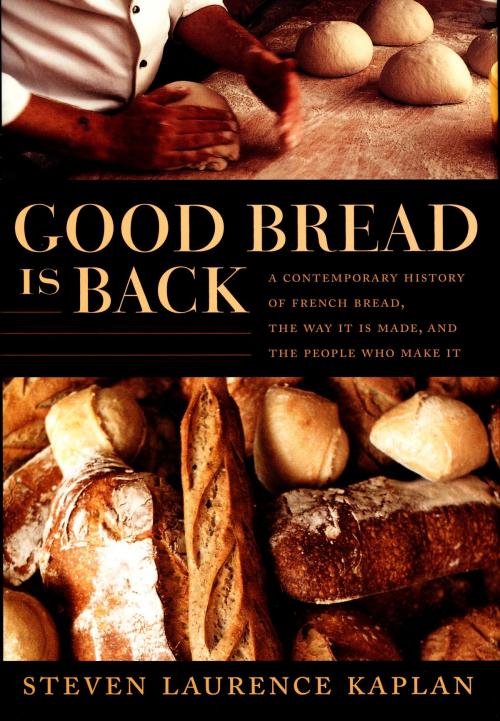Good Bread Is Back
A Contemporary History of French Bread, the Way It Is Made, and the People Who Make It
Nonfiction, Food & Drink, Baking & Desserts, Bread, Food Writing| Author: | Steven Laurence Kaplan | ISBN: | 9780822388289 |
| Publisher: | Duke University Press | Publication: | December 20, 2006 |
| Imprint: | Duke University Press Books | Language: | English |
| Author: | Steven Laurence Kaplan |
| ISBN: | 9780822388289 |
| Publisher: | Duke University Press |
| Publication: | December 20, 2006 |
| Imprint: | Duke University Press Books |
| Language: | English |
In Good Bread Is Back, historian and leading French bread expert Steven Laurence Kaplan takes readers into aromatic Parisian bakeries as he explains how good bread began to reappear in France in the 1990s, following almost a century of decline in quality. Kaplan describes how, while bread comprised the bulk of the French diet during the eighteenth century, by the twentieth, per capita consumption had dropped off precipitously. This was largely due to social and economic modernization and the availability of a wider choice of foods. But part of the problem was that the bread did not taste good. In a culture in which bread is sacrosanct, bad bread was more than a gastronomical disappointment; it was a threat to France's sense of itself. By the mid-1990s bakers rallied, and bread officially designated as "bread of the French tradition" was in demand throughout Paris. Kaplan meticulously describes good bread's ideal crust and crumb (interior), mouth feel, aroma, and taste. He discusses the breadmaking process in extraordinary detail, from the ingredients to the kneading, shaping, and baking, and even the sound bread should make when it comes out of the oven. Kaplan does more than tell the story of the revival of good bread in France. He makes the reader see, smell, taste, feel, and even hear why it is so very wonderful that good bread is back.
In Good Bread Is Back, historian and leading French bread expert Steven Laurence Kaplan takes readers into aromatic Parisian bakeries as he explains how good bread began to reappear in France in the 1990s, following almost a century of decline in quality. Kaplan describes how, while bread comprised the bulk of the French diet during the eighteenth century, by the twentieth, per capita consumption had dropped off precipitously. This was largely due to social and economic modernization and the availability of a wider choice of foods. But part of the problem was that the bread did not taste good. In a culture in which bread is sacrosanct, bad bread was more than a gastronomical disappointment; it was a threat to France's sense of itself. By the mid-1990s bakers rallied, and bread officially designated as "bread of the French tradition" was in demand throughout Paris. Kaplan meticulously describes good bread's ideal crust and crumb (interior), mouth feel, aroma, and taste. He discusses the breadmaking process in extraordinary detail, from the ingredients to the kneading, shaping, and baking, and even the sound bread should make when it comes out of the oven. Kaplan does more than tell the story of the revival of good bread in France. He makes the reader see, smell, taste, feel, and even hear why it is so very wonderful that good bread is back.















